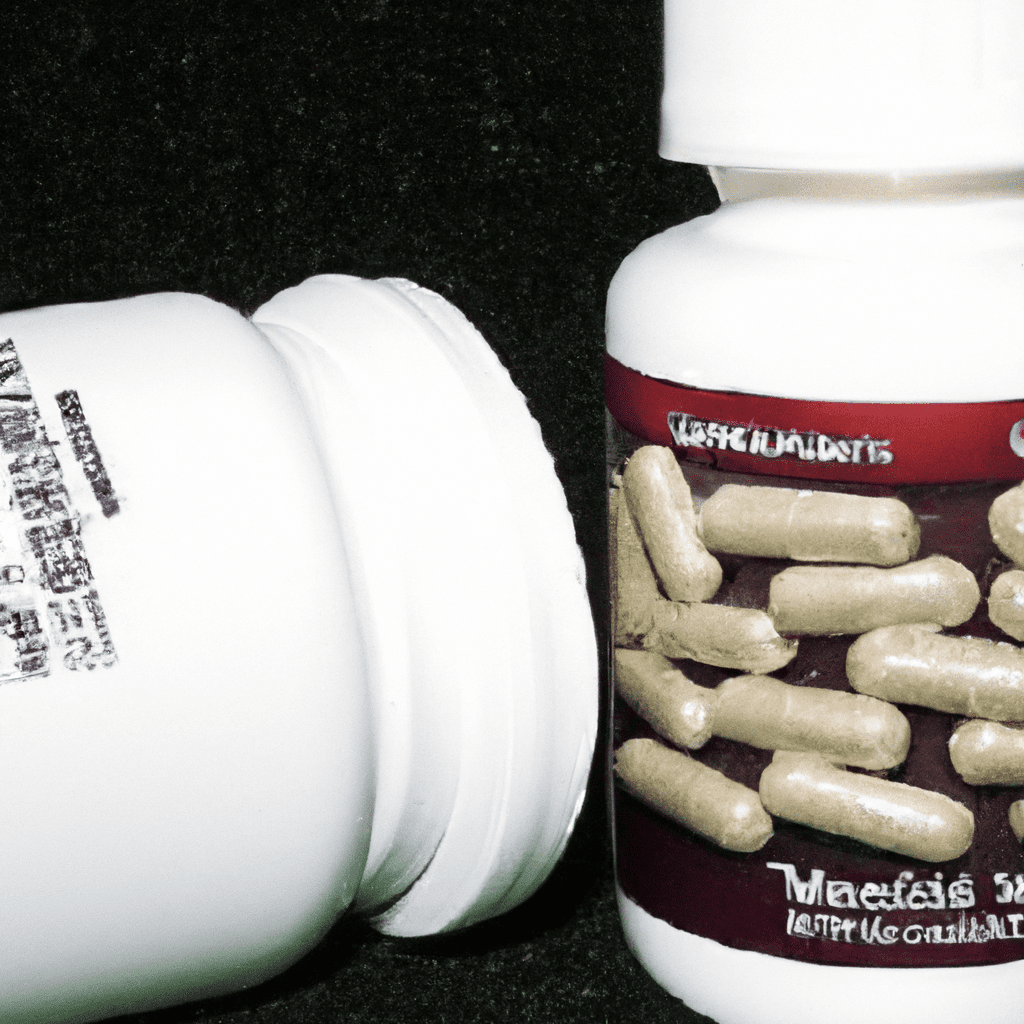

Curiosity about the safety of weight loss supplements has been on the rise, with individuals eager to explore the benefits of these products.
In an industry flooded with various options promising quick and easy results, it becomes crucial to address the lingering question: are weight loss supplements safe? This article aims to shed light on the topic, examining the potential risks and benefits associated with these supplements, ultimately helping you make informed decisions on your weight loss journey.
What are weight loss supplements?
Definition
Weight loss supplements, also known as diet pills or slimming pills, are products that claim to help people lose weight by altering their metabolism, reducing appetite, or increasing fat burning.
These supplements come in various forms, such as pills, capsules, powders, and liquids, and often contain a combination of ingredients that are believed to have weight-loss properties.
Types of weight loss supplements
There are numerous types of weight loss supplements available in the market today. Some of the common types include:
-
Thermogenics: These supplements contain ingredients that increase the body’s metabolic rate, leading to enhanced fat burning.
-
Appetite suppressants: These supplements work by reducing hunger cravings and promoting feelings of fullness, which can help control calorie intake.
-
Fat blockers: These supplements aim to prevent the absorption of dietary fat in the body, potentially leading to reduced calorie intake and weight loss.
-
Carb blockers: These supplements aim to inhibit the digestion and absorption of carbohydrates, which could help reduce calorie intake from carbs.
-
Hormone regulators: These supplements claim to regulate hormones such as cortisol and insulin, which are believed to affect weight gain and loss.
-
Diuretics: These supplements promote water loss from the body, resulting in temporary weight loss due to reduced water retention.
It’s important to note that the effectiveness and safety of these supplements can vary greatly, and it is crucial to approach their use with caution.
Regulation and safety standards
The role of regulatory authorities
Regulatory authorities, such as the Food and Drug Administration (FDA) in the United States, play a crucial role in ensuring the safety and efficacy of weight loss supplements. These authorities are responsible for setting and enforcing regulations and standards for the manufacturing, labeling, and marketing of these products.
Requirements for safety testing
Before weight loss supplements can be marketed, they are typically required to undergo safety testing to assess their potential risks and side effects. However, it’s important to note that the extent and rigor of these safety tests can vary depending on the specific regulations in different countries.
GMP certification
One important aspect of ensuring the safety and quality of weight loss supplements is the certification of Good Manufacturing Practices (GMP). GMP certification ensures that the manufacturing facilities where the supplements are produced adhere to strict quality control standards.
Labeling requirements


Regulatory authorities also mandate specific labeling requirements for weight loss supplements. These include providing a list of ingredients, recommended dosage, and any potential warnings or side effects.
It is crucial for consumers to carefully read and understand the labels before using any weight loss supplements.
Potential risks and side effects
Common side effects
Weight loss supplements can have various side effects, which may vary depending on the specific ingredients and individual tolerance.
Common side effects can include nausea, diarrhea, constipation, bloating, and stomach discomfort. It is important to consult a healthcare professional if these side effects persist or worsen.
Interactions with medications
Weight loss supplements can interact with certain medications, potentially affecting their effectiveness or causing adverse reactions. It is important to inform your healthcare provider about any supplements you are taking to avoid any potential drug interactions.
Allergic reactions
Some weight loss supplements may contain ingredients that can trigger allergic reactions in certain individuals. Common allergens found in supplements include soy, gluten, and certain herbal extracts.
It is crucial to carefully read the labels and consult with a healthcare professional if you have known allergies.
Long-term risks
The long-term risks of weight loss supplements are still not fully understood, as research in this area is limited. However, some studies have suggested potential risks such as liver damage, cardiovascular issues, and metabolic imbalances. It is essential to consider these potential risks before using weight loss supplements.
Effectiveness of weight loss supplements
Scientific evidence
When it comes to weight loss supplements, the scientific evidence supporting their effectiveness is often limited and mixed. While some ingredients may show short-term weight loss effects, the long-term benefits and sustainability may not be well-established.
Placebo effect
It is essential to consider the placebo effect when evaluating the effectiveness of weight loss supplements. The placebo effect refers to the phenomenon where people experience positive effects due to their belief in the treatment, rather than the treatment itself. This can lead to subjective perceptions of weight loss without any actual physiological changes.
Variability in individual responses


Individual responses to weight loss supplements can vary greatly. While some individuals may experience significant weight loss or other desired effects, others may not see any noticeable changes.
Factors such as genetics, lifestyle, and adherence to a healthy diet and exercise regimen can influence the effectiveness of weight loss supplements.
Popular weight loss ingredients
Caffeine
Caffeine is a commonly used ingredient in weight loss supplements due to its potential thermogenic and appetite-reducing effects. It can increase metabolism and energy expenditure, potentially aiding in weight loss. However, high doses of caffeine can cause side effects such as jitteriness, increased heart rate, and insomnia.
Green tea extract
Green tea extract is rich in antioxidants and is often touted for its potential fat-burning properties. It contains catechins that may increase metabolism and enhance fat oxidation. However, the effects of green tea extract on weight loss are modest, and individual responses can vary.
Garcinia cambogia
Garcinia cambogia extract is derived from a tropical fruit and contains hydroxy citric acid (HCA), which is believed to inhibit the enzyme responsible for converting carbohydrates into fat. However, the evidence for its effectiveness in weight loss is limited and inconsistent.
Raspberry ketones
Raspberry ketones are compounds found in raspberries that are believed to affect metabolism and fat breakdown. However, there is limited scientific evidence to support their effectiveness in weight loss.
Conjugated linoleic acid (CLA)
CLA is a type of fatty acid found in meat and dairy products. It is believed to have potential effects on body composition by reducing body fat and increasing lean muscle mass. However, the evidence for its effectiveness is mixed, and high doses can cause gastrointestinal side effects.
Glucomannan
Glucomannan is a dietary fiber derived from the root of the konjac plant. It is believed to promote feelings of fullness and reduce calorie intake. Some studies have shown modest weight loss effects with glucomannan supplementation, but individual responses can vary.
Bitter orange extract
Bitter orange extract contains synephrine, a compound that has been associated with increased metabolism and fat burning. However, its effectiveness in weight loss is still debated, and it may have similar cardiovascular risks as ephedra.
Chromium picolinate
Chromium picolinate is a mineral that is believed to enhance insulin sensitivity and regulate blood sugar levels. While it may have some potential effects on weight loss and muscle mass, the evidence is limited and conflicting.
Hydroxycitric acid (HCA)
HCA is found in the fruit rind of Garcinia cambogia and is believed to inhibit fat production and appetite. However, studies have shown mixed results, and its effectiveness in weight loss is not well-established.
Pyruvate
Pyruvate is a substance that is involved in energy production in the body. It is believed to enhance metabolism and reduce fat stores. However, the evidence for its effectiveness in weight loss is limited and conflicting.
Warnings and precautions
Pregnancy and breastfeeding
Weight loss supplements should generally be avoided during pregnancy and breastfeeding, as their safety and effects on the developing fetus or infant are not well-studied.
It is important to consult with a healthcare professional for appropriate guidance during these periods.
Underlying health conditions
Individuals with underlying health conditions, such as heart disease, diabetes, or high blood pressure, should exercise caution when using weight loss supplements.
Some ingredients may affect these conditions or interact with medications used to manage them. Consulting with a healthcare professional is essential in such cases.
Sensitive population groups
Certain population groups, such as children, adolescents, and the elderly, may be more vulnerable to the potential risks and side effects of weight loss supplements. Extra caution should be taken when considering their use in these populations.
Dosage considerations
Following the recommended dosage instructions is crucial to ensure safety and minimize potential risks. Taking excessive amounts of weight loss supplements can lead to adverse effects, including increased heart rate, elevated blood pressure, and digestive issues.
Potential drug interactions


Weight loss supplements can interact with certain medications, including blood thinners, antidepressants, and diabetes medications. It is important to consult with a healthcare professional or pharmacist to identify any potential drug interactions before starting any weight loss supplement.
Contaminated and fraudulent supplements
Unapproved or banned ingredients
One of the major safety concerns with weight loss supplements is the presence of unapproved or banned ingredients. Some supplements have been found to contain hidden pharmaceutical drugs or substances that can pose serious health risks. It is crucial to be cautious and purchase supplements from reputable brands or retailers.
Quality control issues
Poor manufacturing practices or lack of quality control can lead to contaminated or adulterated weight loss supplements. These contaminants could pose health risks and may not provide the intended benefits. GMP certification and choosing reputable brands can help mitigate these risks.
Misleading advertising claims
The weight loss supplement industry is known for making extravagant claims and promises that are not supported by scientific evidence. It is important to critically evaluate advertising claims and be skeptical of products that seem too good to be true.
Tips to avoid fraudulent supplements
To avoid fraudulent supplements:
-
Choose renowned brands that have a good reputation and consistently provide quality products.
-
Purchase supplements from reputable retailers or authorized distributors.
-
Read product reviews from reliable sources to get an idea of the experiences and satisfaction of other consumers.
-
Be cautious of supplements with exaggerated claims or promises of rapid and effortless weight loss.
-
Consult with a healthcare professional before starting any new weight loss supplement.
Recommendations for safe use
Consultation with healthcare professionals
Before starting any weight loss supplement, it is advisable to consult with a healthcare professional. They can assess your individual health status, guide you on potential risks and benefits, and help determine if a weight loss supplement is suitable for you.
Choosing reputable brands
Select weight loss supplements from reputable brands that have a proven track record of safety, quality, and effectiveness. Look for certifications and quality assurance seals on the product packaging to ensure that they meet industry standards.
Reading product reviews
Reading product reviews from reputable sources or consumers who have tried the supplement can provide insights into the product’s effectiveness, side effects, and overall satisfaction. However, it is important to keep in mind that individual responses can vary.
Following recommended dosage
Always follow the recommended dosage instructions provided by the manufacturer. Taking more than the recommended dose does not necessarily lead to better results and can increase the risk of side effects.
Monitoring your body’s response


Pay attention to any changes or effects on your body while using weight loss supplements. Monitoring your health and well-being can help identify any adverse reactions or undesired effects. If you experience any concerning symptoms, discontinue use and consult with a healthcare professional.
Alternatives to weight loss supplements
A healthy diet and regular exercise
A healthy diet and regular exercise are the foundation of sustainable and effective weight loss. Focus on consuming nutritious foods, such as fruits, vegetables, lean proteins, and whole grains, while limiting processed foods, sugary beverages, and excessive calorie intake. Engage in physical activities that you enjoy and aim for a combination of cardiovascular exercises and strength training.
Behavioral changes
Changing behaviors and habits around food and lifestyle can have a significant impact on weight loss. This includes mindful eating, portion control, stress management, and improving sleep quality. Working with a registered dietitian or behavioral specialist can provide valuable guidance and support in making these changes.
Lifestyle modifications
Incorporating small lifestyle modifications can contribute to weight loss and overall well-being. This can include taking the stairs instead of the elevator, walking or biking to work, standing instead of sitting for long periods, and finding ways to stay active throughout the day.
Prescription weight loss medications
Prescription weight loss medications are available for individuals with a body mass index (BMI) above a certain threshold or those with obesity-related health conditions. These medications should only be taken under the supervision of a healthcare professional and as part of a comprehensive weight management plan.
Surgical interventions
For individuals with severe obesity or obesity-related health conditions, surgical interventions, such as gastric bypass or gastric sleeve surgery, may be considered. These procedures are usually reserved for individuals who have not achieved successful weight loss through other methods and who meet specific criteria.
Conclusion


When considering weight loss supplements, it is important to approach the topic with caution and critical thinking. While weight loss supplements may offer some potential benefits, they also come with potential risks and uncertainty about their long-term effects.
It is crucial to prioritize healthy lifestyle habits, consult with healthcare professionals, and carefully evaluate the safety and efficacy of weight loss supplements before incorporating them into your weight loss journey.
Ultimately, the decision to use weight loss supplements should be based on individual preferences and personal responsibility for safety.







